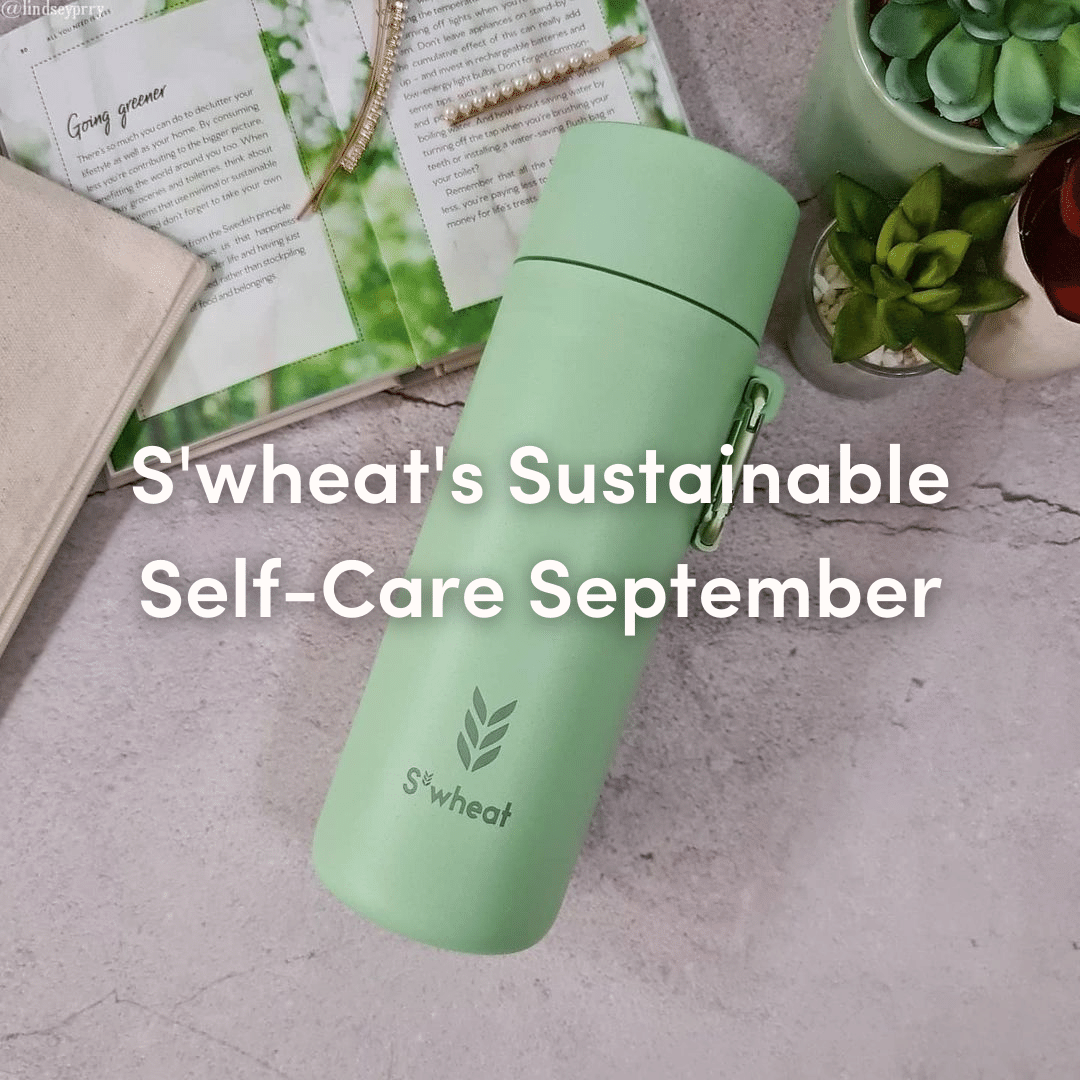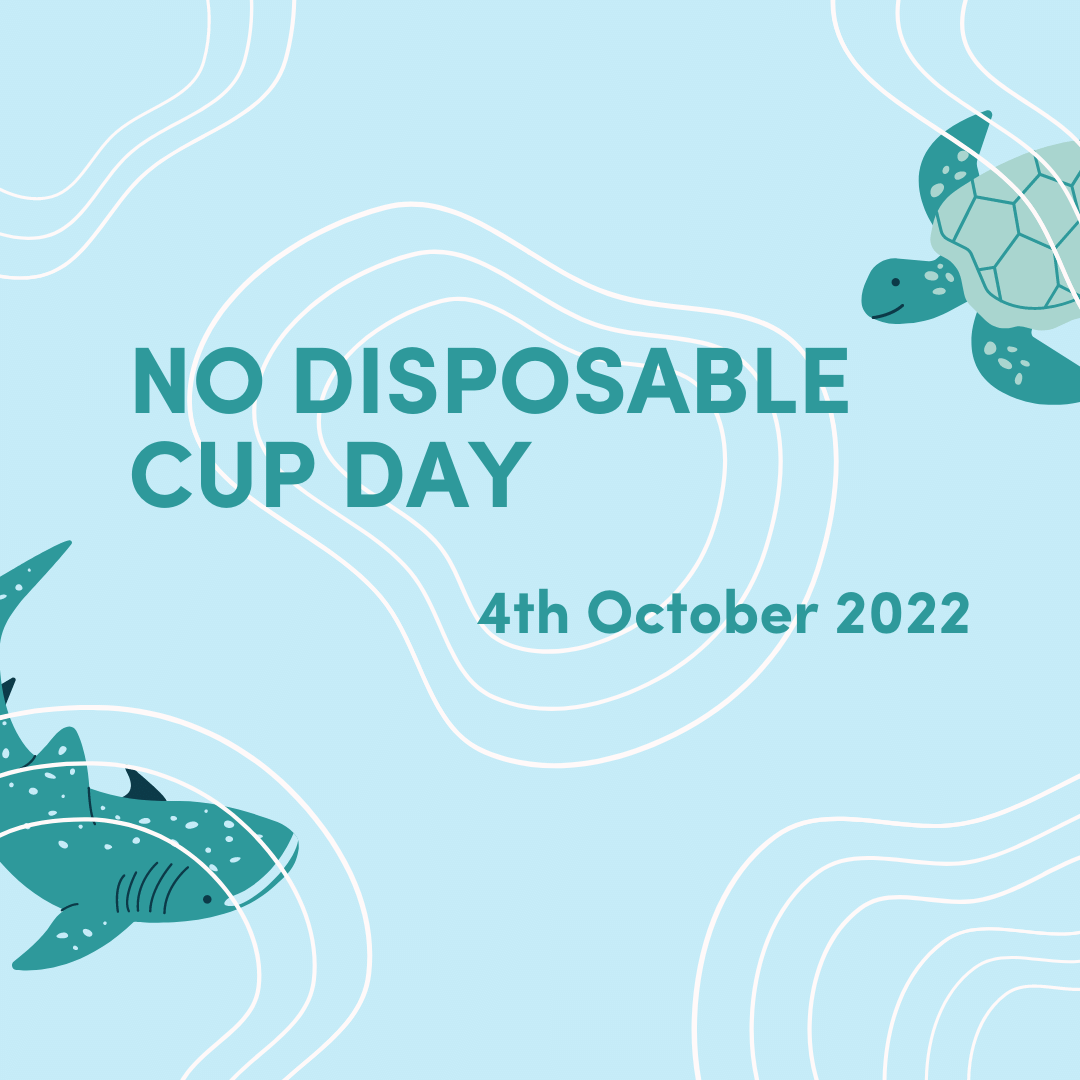This month was Self Care September, so to recap the month, we have put together some of our favourite tips to take care of yourself and the planet.
Switch off electronics
In a predominantly digital era, sometimes it feels as though we have to drag ourselves away from the screen to get anything done. Excessive time using electronics can strain your eyes, cause headaches, disrupt sleep, negatively affect your mental health, and waste electricity too. Most devices feature ‘screen time’ options which allow you to set a limit on how much time you spend on a certain app or device, which can be useful for those who always just want to watch one more episode.
Cutting down on screen time can do wonders for your productivity. Switching off your phone for just an hour a day could give you so much more space to work on a new project, be more social, or even just relax by taking a walk or reading. Use this opportunity to practise whatever self-care means to you.
Create
Allowing time and space to be creative can give you the opportunity to develop a new skill or maybe an old hobby you haven’t had the chance to get back to. Learning a language or reading up on a new subject can be a great use of time, or creative pastimes such as painting, sculpting, or working with fabric can be really rewarding as you can make a whole new item from practically nothing.
If hobbies like embroidery, crochet, and knitting are your kind of thing - or you’d like them to be - making new clothes can be a calming activity as well as a great way to avoid fast fashion. Choosing sustainable fabrics and making clothing by hand means you don’t have to feel guilty about your clothes origin. Older items showing signs of damage can be fixed yourself by sewing a new hem or embroidering over a tear: an innovative way to restore your old threads and avoid waste.
Whether you’re a dedicated plant person, or trying to be, or even a committed carnivore, learning how to make tasty plant-based recipes can improve your health whilst building your cooking skills. There are many delicious meat-free and dairy-free alternatives readily available in supermarkets now, so stocking up on some substitute meat can be a good stepping stone to a more sustainable and natural diet.
Eat local/organic
We’ve all heard the health benefits of natural over processed foods, and the harsh conditions of the meat and dairy industry, but it’s not widely acknowledged how much of an environmental impact they have in comparison to plant-based agriculture. Though it only produces 17% of earth's food supply, animal agriculture takes up nearly 80% of all agricultural land, and plant-based alternatives to meat use 47-99% less land altogether.
How else does plant-based compare to animal agriculture?
- 30%-90% less greenhouse gas emissions
- 72%-99% less water
- 51%-91% less marine pollution
Local, organic foods can also help minimise your own carbon footprint. By walking, cycling, or taking public transport to a local market or organic store you won’t waste emissions driving, and you can avoid the extra energy that is used to transport meat and produce from farm, to factory, to store, to you.
Once you’ve got your nutritious local snacks, why not go on a plant-based picnic to celebrate nature and enjoy spending time with friends and family, without electronic entertainment.
Spend time in nature
Making an effort to have a bit of time in the great outdoors can do wonders for your mood. Vitamin D from the sun, fresh air in your lungs, and connecting with nature will all help you become more grounded and appreciate the world around you. It’s a great place to go whether you want to have a peaceful walk alone or have a plant-based picnic with your loved ones. Exercising outside can be really encouraging, with the beautiful scenery and natural inclines, but if you’re feeling self-conscious and don’t know where to begin, try making it a social occasion.
Really give yourself a chance to explore and discover new places while you’re outside. Try inviting a friend on a gentle hike to get moving while also being able to stop and appreciate the views. This can be a great opportunity to discover a new area, or to just become better acquainted with the world that surrounds you and practice remaining mindful and present.
Use natural products
Medicinal plants and herbs are used regularly within many different areas of interest, whether that be to treat minor ailments and injuries, for mental wellness and stress relief, for skincare, haircare, dental care, there are numerous resources and infinite uses. In the modern world, they are most typically found in products like herbal teas, spices, skincare, scents, and essential oils.
These are easy enough to access, but growing your own means spending more time outdoors, saving money, and having peace of mind that it has been sourced sustainably and ethically. Many brands who claim to sell 100% natural, organic products will likely have to use artificial preservatives and other chemicals in their products to maintain the freshness, so using your own means you really can experience its full benefits without any interference.
If using store-bought products is unavoidable or you just don’t fancy getting your hands dirty, there are some really eco-friendly options around that are plastic-free and organic. Some even allow product containers to be returned when they’re empty, to either be recycled properly or refilled and returned to your doorstep! This is a great way to minimise your plastic waste.
Another great way to keep your plastic intake to a minimum? The world’s first ever reusable bottle made entirely from plants. The unique S’wheat material of bamboo and wheat straw creates a bottle that is:
- Durable
- Lightweight
- Biodegradable
- Naturally insulated
- BPA and melamine free
S’wheat is the perfect way to reduce your plastic consumption and nourish your body by staying hydrated. The plant-based reusable S’wheat bottle is perfect to bring along on your plant-based picnic, to the gym, to keep your coffee hot on the commute to work, to clip onto your bag before a hike into nature… anywhere and everywhere!




1 comment
Susan
Great article, need to get myself a S’wheat bottle for self care september!
Leave a comment
All comments are moderated before being published.
This site is protected by hCaptcha and the hCaptcha Privacy Policy and Terms of Service apply.